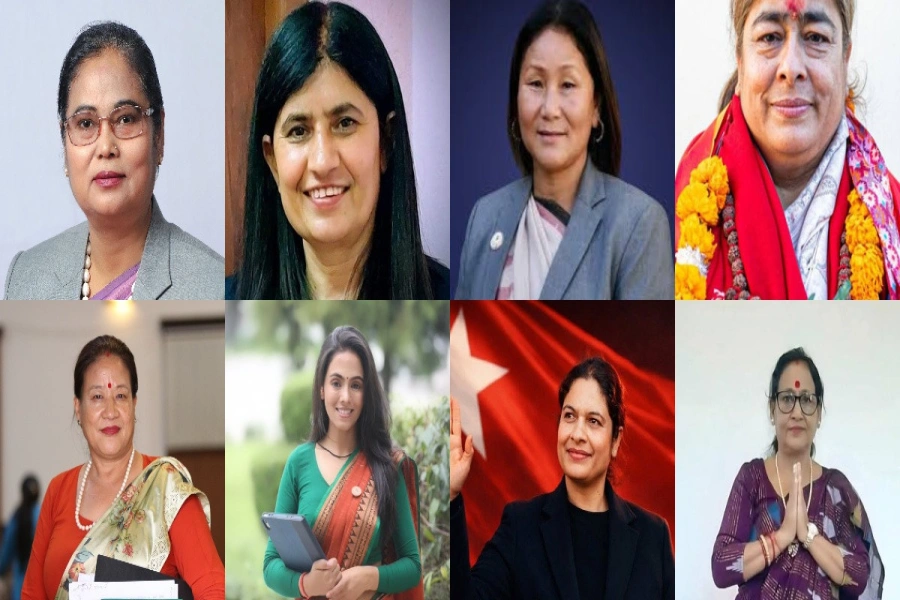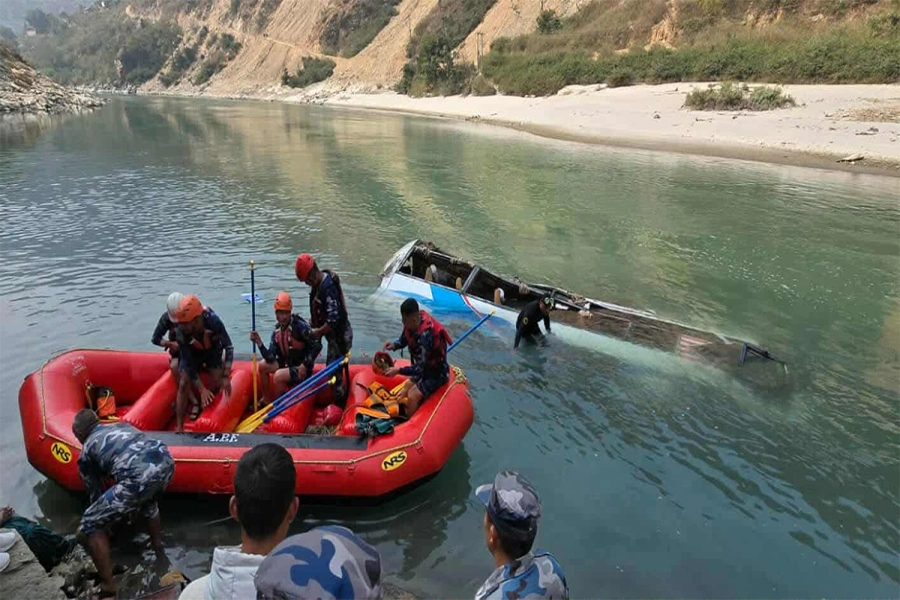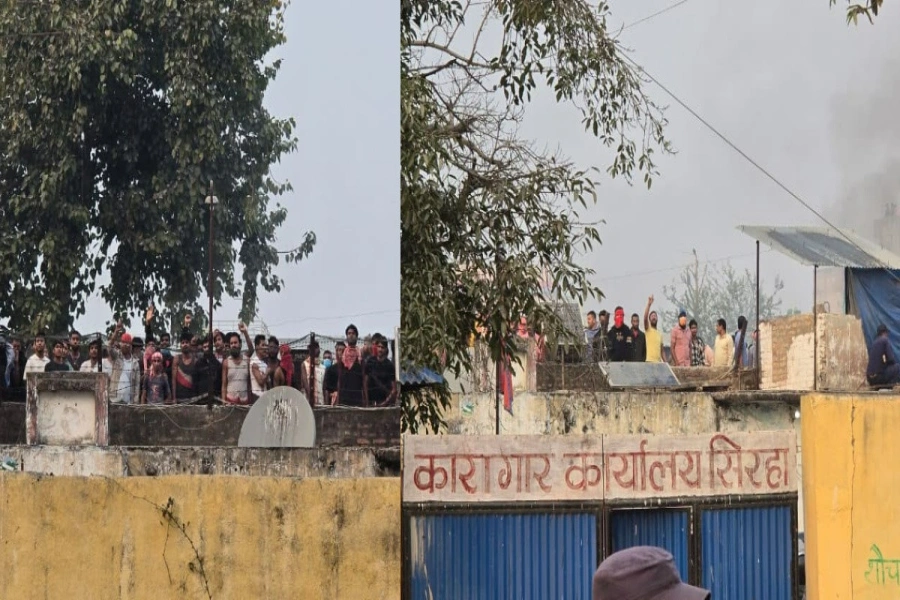Oli made satirical remarks, talked big about projects, two-digit economic growth and prosperity in 2016 too but people did not call him a joker then because they trusted him
Prime Minister KP Sharma Oli was quite popular during his first term and the first few months of his second term. He could not serve full time in 2016 because Maoist Center withdrew its support from the coalition government on July 14, 2016 and registered no-confidence motion against Oli, forcing him to resign. But he was already winning people’s hearts by the time. He made headlines with his satirical remarks, yet nobody called him a joker in those days. Yes, he talked about big projects, two-digit economic growth and prosperity. Those ideas looked ambiguous and far-fetched, but were close to reality and achievable if executed with vision. People, therefore, did not laugh at him, then.
Thousands of people were under the tents following the massive earthquake when Oli talked about big hydropower projects, metro rails and infrastructure developments. Still, people believed in his promises and pinned high hopes on him. The country was in severe fuel crisis when he said he would supply cooking gas through a pipe to Nepali kitchens. The supply of cooking gas and petroleum was affected by the economic blockade imposed by India following the promulgation of Constitution of Nepal. Thanks to his defying stance against Indian blockade, he gained the height of popularity as a strong, unchallenged PM. Everything he said, then, looked like an achievable goal.
Eroding image
The government he is leading now is much stronger than the one he was in charge of in 2016, in every way. But it is looking much more fragile. Despite having power, Oli’s image as an unshaken and unchallenged personality has faded away and popularity has nosedived. His second term has been full of controversies and lack of trustworthiness. The controversial decisions, one after another, have jeopardized the government’s image resulting in public disenchantment with the government as well as the whole system. The government is losing credibility. Like columnist Mahabir Paudyal recently wrote, Oli, who was admired and appreciated by many and appeared to be a deliverer two years ago has already become the subject of hate (See “You got to be serious,” Republica, June 24). Paudyal has rightly pointed out what is wrong with Oli: “Oli is running the government like he is running his own party—appointing ‘yes men’ to key posts, surrounding himself with cronies, intimidating and offending the opponents.”
James Taylor and his wife donate $1M to Boston hospital

Indeed, instead of focusing on economic development and good governance, the two thirds majority government has wasted its precious time in trivial matters. PM himself and his spokesperson (Minister Gokul Banskota) have made the situation worse by arguing with and overreacting to the press.
The government does not listen to the constructive criticism and critical voices. The government’s relationship with the press seems to be combative. The early sign was seen when a talk show that had been aired on Nepal Television for the last 12 years was closed after Baskota was asked about his property details. Right to protest against the government was questioned when Pashupati Sharma, a popular folk singer, in February had to withdraw his popular satirical music video “Lootna sake loot kanchha” apparently under political pressure. The satire was aimed at prevalent corruption in the country. When the song was removed from You Tube it triggered further opposition.
Apparently, this government has missed the trick in prioritizing its actions in order to meet election promises and in many instances failed to handle the critical situations properly. Take Guthi Bill. Without considering the sensitivity and impact of its decision, the government hurriedly tabled the bill only to put itself in trouble. The issue should have been discussed with stakeholders earlier so that necessary reform could have been worked out. Similar measures could have been taken in case of other controversial bills such as Medical Education Bill, Media Council Bill.
Specter of instability
Now infighting within the ruling party has added to the challenges of the government. While Pushpa Kamal Dahal, the co-chair of Nepal Communist Party, has been criticizing Oli for bypassing him and running the party single-handedly, Oli seems to be in no mood to hand over power to the former halfway through the government’s five-year term as agreed by the two before forming the government. Former UML heavyweights such as Madhav Kumar Nepal, Jhalanath Khanal and Bamdev Gautam are dissatisfied with Oli’s way of running the party. There seems to be serious cracks in the party. These cracks could widen and could even lead to government collapse.
When this government fails, we will be headed toward another crisis and we will suffer the most. The hardly earned political stability after costly two decades of political instability and transition must not be slipped away due to government’s incompetency. We as a nation can no more afford another period of instability. One or two stable governments working in favor of people and the country in a good faith is what we need. We all wished the same and had high hopes when this government was formed.
The government is focused on misdirected policies of suppressing people’s right to speech and right to protest. The autocratic behavior of Oli-led government will only make people think of Oli’s option.
Why does not the government focus on completing Melamchi Project? Or complete blacktopping of Kalimati-Nagdhunga road section that has been delayed for years and proven to be a scourge for local people. There are thousands of people compelled to risk their lives using tuins for crossing treacherous rivers in rural areas across the country. Replace them with bridges. There are networks of syndicates in various sectors in the country that are severely affecting people’s day-to-day lives. The mess and monopoly in the transport sector could be brought under control if stringent actions are taken.
PM and his ministers must learn from their mistakes and act in time so as to prioritize other agendas and projects that are more important and beneficial for the mass. Bunch of power-hungry leaders and violence-oriented groups might be waiting for the right time to strike which will only exacerbate the situation. It is high time that Oli-led government changed the way it is running the country before things go out of control.
sandip.neupane24@gmail.com







-1770648553.webp)































